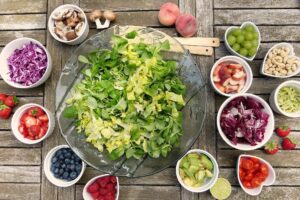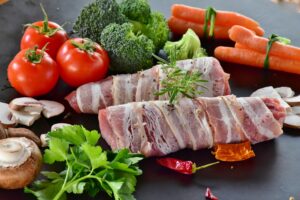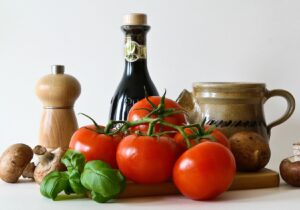Tackling Poor Diet
This is a difficult topic to address well in so much as we know a poor diet will affect one’s general wellbeing but the real question then becomes, what should we be actually eating to improve our health and in particular to prevent cancer? Also, should we be eating different foods once we have had cancer? How does nutrition play a part at a biochemical level, at a cellular level, at a tissue level, at an organ level, at an individual level? The answer doesn’t seem to be so straight forward in part due to the large amount of conflicting results and general confusion, not to mention the plethora of different types of diets that exist e.g. ketogenic / Atkins / FODMAP / 5:2 / 18:6 / Paleo / Mediterranean diet, etc. thought to be helpful in treating many conditions. There just doesn’t seem to be a one-size-fits-all model when it comes to diet. In fact, we ultimately end up with more questions than answers in the quest to find out the true scientific/medical benefits of nutrition on the body particular when it comes to cancer.
‘Let food be thy medicine and medicine be thy food’ (Hippocrates)
At present, I genuinely suspect it boils down to the individual genetic makeup, the individual’s microbiome and a lot of ‘other’ less tangible factors that contribute to how one responds to a certain food(s). This potentially could even include how a certain food is eaten (e.g. boiled, fried, grilled, oven-cooked, microwaved, etc. Meats for example cooked at high temperature produce heterocyclic amines and polycyclic aromatic hydrocarbons, which are cancer-causing chemicals), the context to how it is eaten (e.g. rushed, under stress, the combination of being eaten with other foods, etc.), when it is eaten (e.g. the time of day, the environment, etc.) among other things. What does seem clear from all the various diets I have read so far is that we should ideally be staying clear from refined sugars (possibly due to the Wahlberg effect whereby it is thought that cancer cells mainly generate energy by non-oxidative breakdown of glucose = sugar), genetically modified foods (they may have toxic effects to the body) and to promote the consumption of whole-foods (ideally organic) and strive for a plant-based diet whilst staying clear from processed foods and anything ‘artificial’ and keeping to a well-balanced diet. Easy said than done, I hear you say? Well maybe, maybe not. As with these things, you first need to be in the right frame of mind.
Courtesy of TEDxRuppin (taken from YouTube) Terms of Service
That said, the problem is that there is still variation whereby an individual can potentially respond very differently to certain foods that even may be commonly thought to be cancer-fighting in the nutrition world (e.g. turmeric, ginger, garlic, kale, broccoli, cauliflower, parsley, etc.). An individual may find great health benefits from one food, whilst for another person, the same food may actually cause harm (e.g. by worsening symptoms associated with their irritable bowel syndrome) so the jury does seem to be out. However, cutting out junk foods (especially processed), staying clear from preservatives, artificial colourings and flavours, refined sugars, soft drinks and (near) out of date foods does seem to be a sensible starting point to a more healthier diet. Doing the necessary research is important but also finding out what works best for you and being your own advocate for your own health will enable you to optimise your diet. Whilst you may initially find bodily adjustments following any drastic changes to ones’ diet as part the process of detoxing, hopefully your body will settle into the new healthier routine and ultimately crave for the right sorts of foods – at the end of the day as they say, the smartest doctor in the room is your body.
Also take a look at How To Turn A Leaf (Store & Products), which should help you to find healthier options.
Cancer Prevention Research >> Achieving Good Health & Resisting Cancer (n = 1) I Tackling Stress I Tackling Sleep I Tackling Obesity I Tackling Smoking I Tackling Alcohol I Tackling the Lack of Exercise I Tackling Sun Exposure I Tackling Work-Life Balance I Tackling the Fear of Seeing Your Doctor I Cancer Screening I Cancer Vaccination I Genetic Testing


